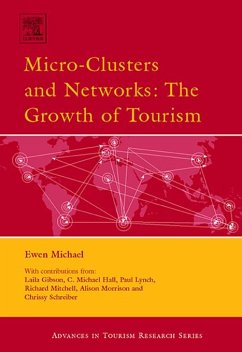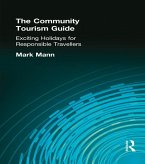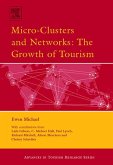Microclusters and Networks provides a theoretical explanation of how and why micro-clusters come about, with chapters by specialist authors to illustrate examples of their practice in the real world; but it goes further to demonstrate not only why they work but also how community members interact to form successful clusters. The incorporation of networking theory provides the means to explain the role of local community interaction in delivering successful social outcomes. The analysis that is provided clearly has applications for many industries beyond the development of rural and regional tourism destinations.
*Provides a theoretical explanation of how and why micro-clusters come about
*Brings together contemporary views of the potential of clustering theory to promote development in micro-markets
*Enhances the discussion of rural development policies for tourism bylocal communities, policy analysts and academic researchers
Dieser Download kann aus rechtlichen Gründen nur mit Rechnungsadresse in A, B, BG, CY, CZ, D, DK, EW, E, FIN, F, GR, HR, H, IRL, I, LT, L, LR, M, NL, PL, P, R, S, SLO, SK ausgeliefert werden.
Hinweis: Dieser Artikel kann nur an eine deutsche Lieferadresse ausgeliefert werden.









